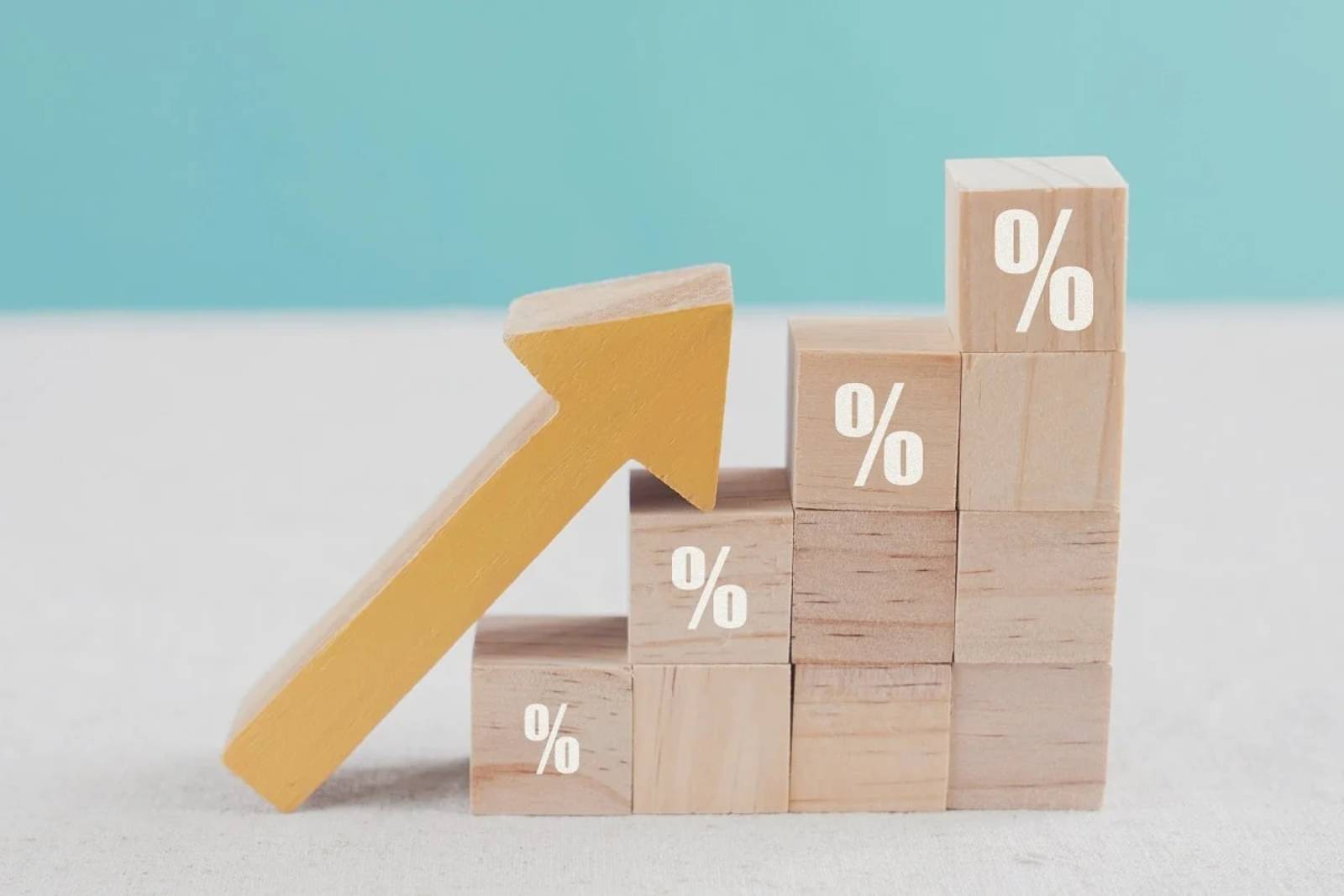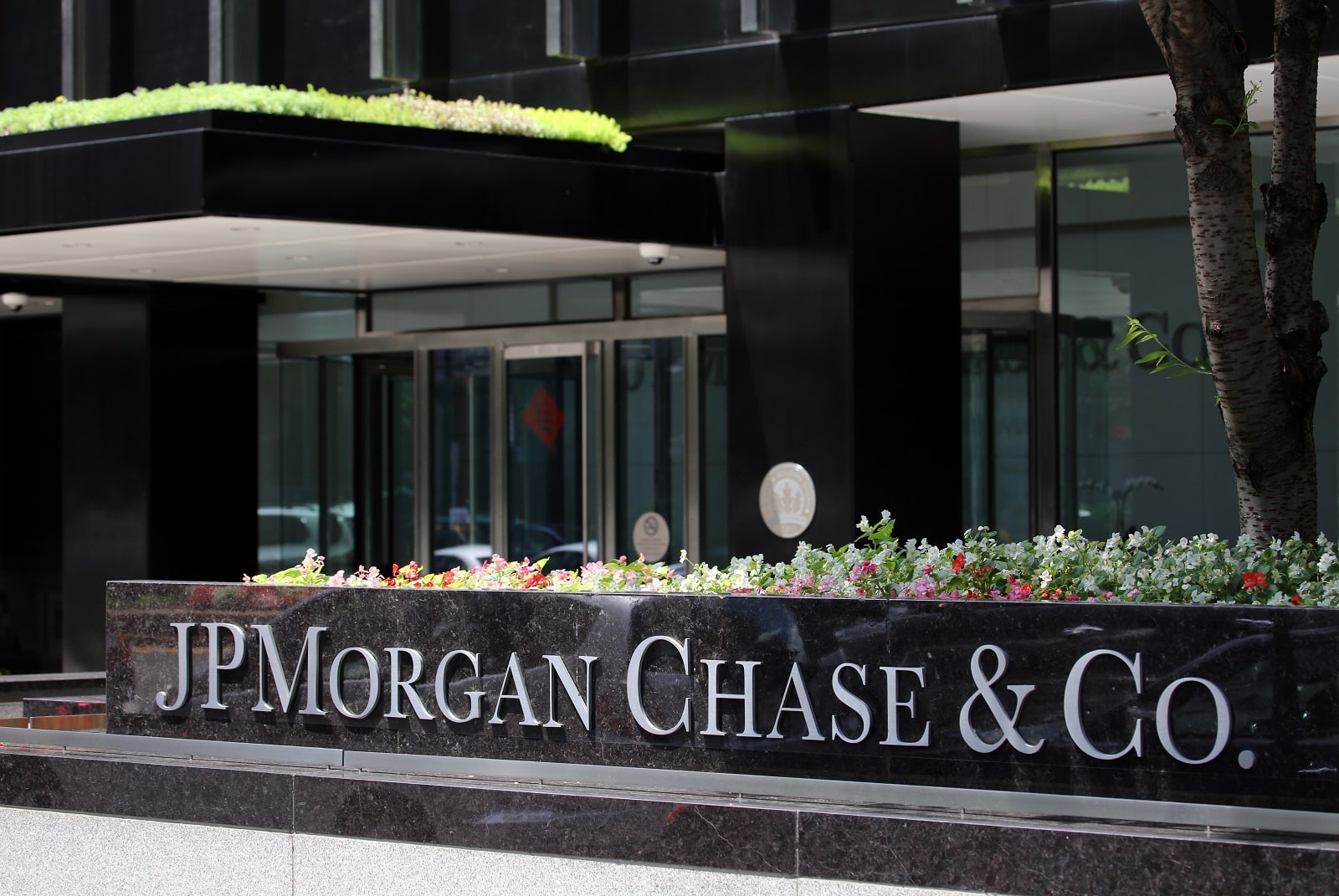One of the most influential bankers in the world has made a number of warnings and predictions for the U.S. and global economy in a recent newsletter.
JP Morgan Chase Newsletter

In a newsletter to investors on Monday, JP Morgan Chase CEO Jamie Dimon covered a number of observations, predictions, and concerns – including the potential for higher interest rates and “stickier” inflation than many expect.
Several Important Topics

Morgan noted several risks currently threatening the U.S. economy, which could lead to “stickier inflation and higher rates than markets expect” in the near future.
Risk Factors for Inflation and Interest Rates

These risk factors include extensive government spending, the Federal Reserve’s plans to lower interest rates, and ongoing global conflicts that could negatively affect global markets and geopolitical relationships.
Government Spending to Blame?

“It is important to note that the economy is being fueled by large amounts of government deficit spending and past stimulus,” he wrote in his annual newsletter.
More Spending Needed

“There is also a growing need for increased spending as we continue transitioning to a greener economy, restructuring global supply chains, boosting military expenditure, and battling rising healthcare costs,” he said. “This may lead to stickier inflation and higher rates than markets expect.”
Threats to the Economy

He noted “ongoing fiscal spending, remilitarization of the world, restructuring of global trade, capital needs of the new green economy, and possibly higher energy costs in the future” as major factors that could impact the economy going forward.
Significant and Unprecedented

Dimon said that these “significant and somewhat unprecedented forces” had been noted by JP Morgan Chase, one of the world’s biggest multinational financial institutions.
Bank Prepares for Higher Interest Rates

The bank has been preparing for interest rates of “2% to 8% or even more” in the coming year.
Inflation Higher Than Expected

These predictions don’t seem unrealistic, as inflation has already outstripped predictions for January and February this year, and the Federal Reserve has raised inflation forecasts for 2025.
A Wide-Ranging Discussion

But Dimon’s newsletter went beyond concerns around inflation and interest rates. He also touched on topics like AI, U.S. banking regulations, and military conflict in Ukraine and the Middle East, among others.
Artificial Intelligence

The newsletter cited the rapid development of artificial intelligence as one of the most pressing issues that JP Morgan and Chase are currently facing.
“Extraordinary Consequences”

On behalf of the banking giant, he shared that they are “completely convinced the consequences will be extraordinary and possibly as transformational as some of the major technological inventions of the past several hundred years.”
Geopolitical Tensions Rise

He also pointed to concerns about ongoing military conflicts, including the wars in Ukraine and Gaza and the rise of geopolitical tensions around the world.
Unlike Anything Since World War II

According to Dimon, these conflicts posed “risks that could eclipse anything since World War II,” and highlighted the fact that America cannot “stand alone.”
America Needs to Collaborate Peacefully

“America has the full capability to lead and coalesce the Western world, though we must do so respectfully and in partnership with our allies,” he wrote.
A Resilient Economy

However, the newsletter had some more optimistic observations, with Dimon describing the US economy as “resilient” in the face of an “unsettling landscape.”
Due to consumer spending, “the markets currently expect a soft landing.”
Annual Investor Newsletter

The 68-year-old Dimon, who has been acting CEO of JP Morgan Chase since 2005, sends out the 61-page newsletter to investors each year.
USA’s Most Influential Banker

His position as the longest-serving chief executive in the bank’s history has made him the most influential banker in the U.S. and one of the most influential financing executives in the world.
Most Profitable Bank in America

Under Dimon, JP Morgan Chase has become the most profitable bank in America and one of the most profitable banks in the world.
Possible Retirement in the Works?

The CEO’s incoming retirement has been a topic of conversation in the finance world for some time. Though he did not address the topic of leaving the company in his newsletter, a separate filing from the company mentioned “an orderly CEO transition to take place in the medium-term.”
Finding Strong Potential Candidates

According to the filing, JP Morgan Chase’s board of directors “has developed, and will continue to develop, several operating committee members who are well-known to shareholders as strong potential candidates to succeed Mr. Dimon.”
21 States Where Squatters Can Legally Claim Your Property

Discover how squatters’ rights, or adverse possession, are more than just legal jargon—they’re stories of unexpected twists in the world of real estate. From sunny California to the historical landscapes of Pennsylvania, here’s how these laws could turn the tables on homeowners and squatters alike. 21 States Where Squatters Can Legally Claim Your Property
14 Things That Are Banned in the U.S. but Totally Fine Elsewhere

Ever feel like America’s rulebook was written by someone with a dartboard? Across the pond or down under, things get even wackier. Let’s take a walk on the wild side of global “Do’s” that are definite “Don’ts” in the Land of the Free. 14 Things That Are Banned in the U.S. but Totally Fine Elsewhere
25 American States Nobody Wants to Visit Anymore

Across the United States, some states capture the hearts and itineraries of many, while others remain quietly on the sidelines, overshadowed or misunderstood. These 25 states, facing what you might call a popularity crisis, are brimming with hidden wonders, cultural riches, and natural beauty, awaiting those willing to look beyond the usual tourist trails. 25 American States Nobody Wants to Visit Anymore
20 Foods That Are Cheaper to Eat Out Than Making at Home

In a world where convenience often wins, certain culinary delights come with a lower price tag when enjoyed at a restaurant rather than crafted in your own kitchen. Here are twenty foods that might save you both time and money when indulged in at your favorite eatery. 20 Foods That Are Cheaper to Eat out Than Making at Home
17 Things You’re Paying For, but You Don’t Have To

In the land of the free, there’s a price tag on everything, but savvy Americans know better than to open their wallets for just anything. Here are 17 expenses you’ve been shelling out for without realizing there’s a cheaper or even free alternative. 17 Things You’re Paying For, but You Don’t Have To
The post Jamie Dimon’s Warning: ‘Inflation Sticking, Rates Increasing’ first appeared on From Frugal to Free.
Featured Image Credit: Shutterstock / lev radin.
The content of this article is for informational purposes only and does not constitute or replace professional financial advice.
